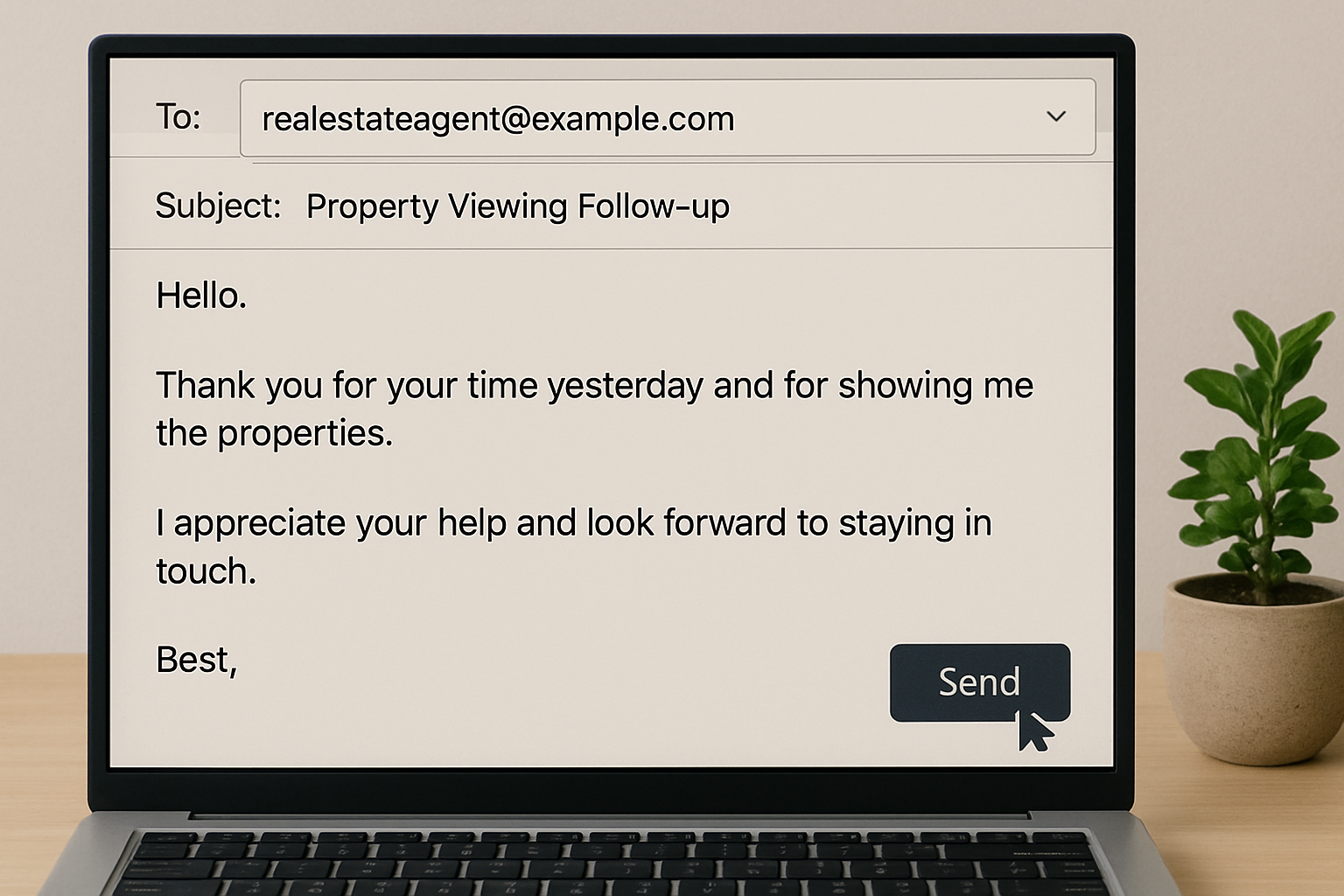In today's real estate investment market, where it is becoming increasingly difficult to earn satisfactory profits through conventional rental management alone, hybrid operation of private accommodations and rentals is attracting attention as an innovative investment method.
As INA & Associates, Inc. we have been involved in the real estate industry for many years. Based on our experience, we are convinced that hybrid operation is one of the best solutions for modern real estate investment, taking advantage of the 180-day annual limit on the number of business days for private accommodations set by the Residential Accommodation Business Law (the new law for private accommodations), which came into effect in 2018.
In this article, we will provide real estate investors with a detailed explanation of the specific methods, profitability, and practical operation of hybrid operations that combine private accommodations and rentals. In particular, we will explain specifically from a practical perspective how to overcome the 180-day limit and realize stable earnings 365 days per year.
Basic Concept and Legal Framework of Hybrid Operation
Understanding the Residential Accommodation Business Law (New Law for Private Residences)
The Residential Accommodation Business Law is a law that came into effect on June 15, 2018, and establishes the basic rules for private accommodations operations. The most important feature of this law is that it limits the number of operating days per year to 180 days. While this restriction provides a new framework that differs from the existing Ryokan Business Law, it also restricts profit-earning opportunities for private accommodations operators.
However, an important perspective in modern real estate investment is to use this 180-day limit not as a mere restriction, but as an opportunity to build a new business model.
Detailed Mechanism of the 180-Day Restriction
The 180-day limit under the Residential Accommodation Business Law is not simply a number of days. Specifically, it stipulates that the cumulative number of days a guest stays at a property must not exceed 180 days per year. For example, a stay of one night and two days is counted as one day, and a stay of three nights and four days is counted as three days.
This restriction requires overnight stay operators to strategically plan their operations. This gives rise to the idea of concentrating operations during the peak season and seeking other ways to utilize the property during the off-peak season. Herein lies the rationale for hybrid operation in combination with monthly condominiums.
Legal Classification with Monthly Condominiums
Monthly condominiums are short-term rental housing with a contract period of 30 days or longer. An important point is that contracts of 30 days or longer are exempt from the application of the Residential Accommodation Business Law. In other words, after operating as a private residence for 180 days, the remaining 185 days can be operated as a monthly condominium, 365 days per year, without legal problems.
Understanding this legal distinction is the foundation for successful hybrid operation. Legally, private accommodations and monthly condominiums are completely different forms of business, and the laws and regulations applicable to each are different. Understanding these differences accurately and operating them appropriately is the key to maximizing profits while maintaining compliance.
| Form of Operation | Legal Basis | Operating Day Limit | Contract Term | Major Regulations |
|---|---|---|---|---|
| Residential Accommodation Business | Residential Accommodation Business Law | Up to 180 days per year | 1 to 29 days | Notification system, management service regulations |
| Monthly condominiums | Land and Building Lease Law | No restrictions | 30 days or more | Lease agreement, Building Lots and Building Lots Law |
| Ryokan Business | Ryokan Business Law | No limitation | No restrictions | Permit system, structural and facility standards |
Importance of Legal Compliance
Thorough legal compliance is essential when conducting hybrid operations. In the case of overnight stay operations, notification to the competent local government, preparation and storage of a guest list, and implementation of sanitary control measures are required. On the other hand, in the operation of monthly condominiums, proper conclusion of lease contracts and compliance with the Building Lots and Buildings Transaction Business Law are required.
Just as we place "human resources" and "trust" at the core of our management, legal compliance is the foundation that supports the sustainability of our business. Neglecting legal risks in the pursuit of short-term profits can be a factor that hinders long-term business growth.
Particular attention should be paid to the procedures at the time of switching between private accommodations and monthly condominiums. Once the 180-day limit for overnight stays is reached, the business must be promptly transitioned to monthly condominium operations. To minimize vacancy risk during this transition period, advance reservation management and customer development are important.
Profitability Analysis and Business Model
Profitability Comparison with Conventional Rental Management
When comparing the profitability of conventional rental management and hybrid management, the difference is stark. In general rental management, the monthly rent is fixed, and during the period of vacancy, there is no revenue. On the other hand, hybrid operation can realize an optimized profit structure throughout the year by combining high profit during the private accommodation period and stable profit during the monthly condominium period.
Let's compare them with specific figures. Taking a 1LDK property (about 50m2) in central Tokyo as an example, a conventional rental management typically generates a monthly rental income of about 150,000 yen. Annual earnings would be 1.8 million yen (excluding vacancy periods).
On the other hand, hybrid operation can expect to earn between 8,000 yen and 12,000 yen per day during the private accommodation period (180 days). Assuming an average unit price of 10,000 yen and an occupancy rate of 70%, earnings during the overnight stay period would be 1.26 million yen (180 days x 70% x 10,000 yen). For the monthly condominium period (185 days, about 6 months), you can expect to earn about 180,000 yen per month, or 1,080,000 yen in 6 months.
| Operation Method | Annual revenue | Average monthly earnings | Comparison with conventional rental |
|---|---|---|---|
| Conventional lease | 1.8 million yen | 150,000 yen | Standard |
| Hybrid operation | 2,340,000 yen | 195,000 yen | +30% (180-day limit) |
| Private accommodation only (180-day limit) | 1,260,000 yen | 105,000 yen | -30 |
As this comparison clearly shows, hybrid operation has the potential to increase revenues by approximately 30% compared to conventional rental management.
Details of Profit Structure of Hybrid Operation
A detailed analysis of the revenue structure of the hybrid operation makes its superiority even clearer. During the period of private accommodations operation, it is possible to operate at a high unit price during the peak season (Golden Week, summer vacation, year-end and New Year holidays, etc.). In particular, with the current recovery in inbound demand, demand for private accommodations for foreign tourists has been strong.
On the other hand, during the term of monthly condominiums, operations can be targeted to stable demand groups such as business travelers, transferees, and users during the resettlement period. These users are generally expected to stay for a long period of time, which contributes to stabilizing the occupancy rate.
Importantly, these two revenue sources function in a complementary manner. The seasonal differences can be leveraged: demand for monthly condominiums rises during periods when demand for overnight stays declines, and conversely, demand for overnight stays rises during periods when demand for monthly condominiums declines.
Occupancy Rate and Profitability
Occupancy rate in a hybrid operation is an important indicator directly related to profitability. Occupancy rates during the overnight stay period are highly dependent on location, attractiveness of the property, pricing, marketing strategy, and other factors. In general, occupancy rates of 70% or more can be expected for properties in good locations in urban areas, but may be as low as 50% in suburban areas or non-touristy locations.
Occupancy rates during the term of a monthly condominium are more stable than those of private accommodations, as the contract period of 30 days or more ensures a certain period of income once the tenant has moved in. However, the key issue is how to shorten the vacancy period until the next tenant is secured after the contract ends.
Risk Diversification Effect
One of the major advantages of hybrid management is the risk diversification effect. In conventional rental management, risks such as tenants moving out and rent arrears have a direct impact on earnings. Hybrid operations, on the other hand, can reduce the impact of specific risks on overall earnings by having multiple sources of revenue.
For example, even in the event of a temporary drop in demand for private accommodations, a certain level of revenue can be secured through demand for monthly condominiums. Conversely, in the event of a softening in the market for monthly rental condominiums, the company can supplement this with revenues from overnight stays.
It also improves the ability to adapt to changes in economic conditions. During economic downturns, demand for business travel may decrease, and demand for monthly condominiums may decline, but at the same time, demand for extended-stay tourism and the use of private accommodations by people who are considering relocating may increase.
This risk diversification effect is an important factor that enhances stability in real estate investment. In particular, for ultra-high-net-worth investors, risk-adjusted returns are an important criterion for decision-making, not simply profitability. Hybrid management is an excellent investment approach from this perspective.
Practical Operation Methods and Management System
Three Major Management Patterns
There are three main management patterns in hybrid management, depending on the characteristics of the property and the investor's policies. Each pattern has inherent advantages and disadvantages, and appropriate selection is the key to success.
The first pattern is the "rooming system. This method can be applied when you own a single building or multiple apartments, with some of the rooms being used exclusively for overnight stays and the remaining rooms being used exclusively for monthly apartments. For example, if you own a 10-room apartment building, you can operate 5 rooms as a private accommodation and 5 rooms as a monthly condominium and earn income from both at the same time throughout the year.
The advantage of this method is the stability of the operation. Even in the event of a decline in demand for overnight stays, the revenue from the monthly condominiums will support the overall revenue. It also allows for more efficient management. The disadvantage is that the use of each room is fixed, limiting flexibility in dealing with fluctuations in demand.
The second pattern is the "periodic allocation method. The same room is operated as a private accommodation for 180 days per year and as a monthly apartment for the remaining 185 days. This method is suitable for investors who wish to realize a hybrid operation with a single property.
In the divided-period method, the investor can maximize income by concentrating on the operation of private accommodations during the peak season (spring, summer, year-end and New Year, etc.) and operating monthly condominiums during the off-peak season. However, it should be noted that there is a risk of vacancy during the switchover period and that adjustments to furnishings and equipment are required.
The third pattern is the "demand response method. Basically, the property is operated as a monthly condominium, and during the vacancy period, it is used as a private accommodation. This method is particularly effective in areas with stable demand for monthly condominiums.
In the demand-response method, the period between the end of a contract for a monthly condominium and the time when the next tenant is found is effectively used as a private overnight stay. This allows you to generate income during the vacancy period, which would otherwise be zero.
| Operation Pattern | Applicable conditions | Advantages | Disadvantages |
|---|---|---|---|
| Room sharing method | Multiple room ownership | Operational stability, management efficiency | Limited flexibility |
| Period division method | Single property | Revenue maximization, demand response | Switchover risk, facility adjustment |
| Demand Response Method | Stable demand area | Vacancy risk reduction | Limited revenue from overnight stays |
More detailed and efficient management operations
Management tasks in hybrid operations are more complex than in conventional rental management. This is because each of the two types of management operations, the overnight stay operation and the monthly apartment operation, have their own unique management tasks. Establishing an efficient management system is an important factor for successful operation.
The main management tasks in the operation of private accommodations include reservation management, check-in and check-out handling, cleaning arrangements, replenishment of supplies, handling of guests, and preparation and storage of guest lists. These tasks occur on a daily basis and require prompt and accurate responses.
Of particular importance is communication with guests. Since many foreign tourists use the hotel, multilingual support may be required. In addition, 24-hour emergency response needs to be considered.
The main management tasks in monthly apartment management include tenant recruitment, contract procedures, moving in and moving out attendance, rent control, facility maintenance, and tenant relations. Compared to private accommodations, the length of a single contract is longer, so the daily workload is reduced, but the legal procedures related to the contract are more important.
Use of management services
Management of hybrid operations is highly specialized, and it is often difficult for individual investors to complete all of the work on their own. Therefore, the use of an operating agent service is an important option.
Important evaluation criteria when selecting a management service include experience in managing both private accommodations and monthly apartments, thorough legal compliance, efforts to maximize earnings, and a highly transparent reporting system.
Agency commissions generally range from 15% to 30% of sales, but it is important to evaluate the overall quality of the services provided and their contribution to increasing revenue, rather than selecting a company based solely on low commissions. In many cases, an excellent management agency will be able to increase revenues more than the commission fee.
In addition, it is important to make detailed agreements with the management agency regarding clarification of the scope of work, frequency of reporting, emergency response, and conditions for termination of the contract. In particular, it is necessary to confirm detailed procedures in advance regarding how to respond when switching between private accommodations and monthly apartments.
Efficiency through the use of technology
For reservation management systems, it is effective to introduce a system that allows centralized management of private accommodation reservation sites (Airbnb, Booking.com, etc.) and monthly apartment reservation sites. This will prevent double booking, optimize occupancy rates, and maximize revenues.
The introduction of a dynamic pricing system can automate optimal pricing according to the balance between supply and demand. In the case of private accommodations, it is important to set prices in consideration of event dates, seasonal factors, and prices of competing properties. In the case of monthly condominiums, adjusting prices according to market fluctuations also contributes to improved profitability.
IoT technology can be used to remotely manage facilities, optimize energy efficiency, and improve security. Smart locks, smart appliances, and sensors can be introduced to automate management tasks and improve user convenience at the same time.
Data analysis systems enable advanced analysis of user behavior patterns, demand forecasts, and revenue analysis. By utilizing these data, it is possible to formulate more accurate operational strategies.
Although the introduction of these technologies requires an initial investment, the return on investment can be expected to be substantial when considering the improvement of long-term operational efficiency and maximization of revenues. In particular, when operating multiple properties, the return on investment will be more pronounced due to economies of scale.
Conclusion
Prospects for Hybrid Operation
Hybrid operation of private accommodations and rentals is one of the most innovative and practical methods of modern real estate investment. By utilizing the 180-day limit imposed by the Residential Accommodation Business Act not as a constraint but as an opportunity to build a new business model, you can realize profitability far exceeding that of conventional rental operations.
Based on the experience we at INA & Associates have accumulated over the years, we can say that thorough legal compliance, the establishment of an efficient management system, and a commitment to continuous improvement are indispensable to the success of a hybrid operation.
The market environment for hybrid operations is expected to improve further in the future due to a full-fledged recovery of inbound demand, increased demand for work vacations resulting from the diversification of work styles, and increased demand for short-term stays due to the concentration of population in urban areas.
Recommendations to Investors
Investors considering hybrid operations should place particular emphasis on the following points.
First, the importance of location selection. Selecting a location where both demand for private accommodations and demand for monthly condominiums can be expected is the foundation for success. Please select the most suitable property by comprehensively evaluating its transportation convenience, surrounding environment, accessibility to tourist attractions, and proximity to business districts.
Next, the initial investment should be appropriate. Hybrid operations require capital investment that can accommodate both private accommodations and monthly condominiums. Excessive investment will prolong the payback period, while inadequate investment will reduce competitiveness. It is important to formulate an appropriate investment plan based on market research.
Furthermore, the selection of an operating partner is also an important factor for success. Partnering with a reliable operating agent streamlines professional administrative tasks and allows investors to focus on strategic decision making.
Next Action Steps
If you are considering implementing a hybrid operation, we recommend that you proceed with the following steps
1. Conduct market research: Detailed analysis of demand for private accommodations and monthly condominiums in the target area
2. Property selection: Selection of the most suitable property, taking into account location conditions, property specifications, and investment budget.
3. Business Plan Development: Creation of a detailed business plan including revenue projections, operational plans, and risk analysis
Completion of legal procedures: Notification of residential accommodation business and acquisition of necessary permits and notifications
5. Establishment of an operation system: Self-operation or conclusion of a contract with a management agency
System implementation: Reservation management, pricing, and customer service system implementation
Start of operation: Start of operation in stages and continuous improvement
We at INA&Associates Inc. provide support based on our extensive experience and expertise in all of these steps. As a "tech-driven human capital investment firm," we are committed to helping our investors succeed.
Hybrid management is more than just a revenue enhancement method. It is a strategic approach to adapt to changing market conditions and achieve sustainable growth. We hope you will join us in exploring new possibilities for real estate investment.
Frequently Asked Questions
Q1: What is the initial investment amount required?
The initial investment for a hybrid operation varies greatly depending on the location, size, and facility level of the property. For a typical 1LDK property (about 50m2) in an urban area, the initial investment to start operation, excluding property acquisition costs, is approximately 2-4 million yen.
This amount includes the purchase of furniture and appliances, interior work, system installation costs, various procedural costs, and working capital. Please take into consideration that higher quality capital investment than for a typical rental property is required to accommodate both private accommodations and monthly condominiums.
However, since these investments are directly related to increased revenues, the payback period is generally 2 to 3 years if implemented based on proper planning.
Q2: How much management effort is required?
The management tasks of a hybrid operation are more complicated than those of conventional rental management, but by establishing an appropriate system and management structure, efficient management is possible.
In the case of self-management, during the period of private accommodations, daily handling of reservations, cleaning arrangements, guest relations, etc. are required, requiring 1-2 hours of work per day. During the monthly condominium period, the workload is reduced, as the focus is on responding to tenants and facility maintenance.
When utilizing a management service, the direct workload of the investor is greatly reduced. The main workload will be checking monthly reports, making strategic decisions, and reviewing the annual business plan.
Q3: Are there any legal risks?
Legal risks in hybrid operations can be minimized with proper knowledge and preparation. Major risks include violations of the Residential Accommodation Business Law, noncompliance with the Building Standards Law and Fire Prevention Law, neighborhood problems, and tax issues.
To avoid these risks, it is important to conduct legal research in advance, obtain appropriate notifications and permits, conduct regular compliance checks, and work with experts.
Q4: Is profitability really high?
The profitability of a hybrid operation depends largely on the location, attractiveness of the property, and quality of the operation. Under the right conditions, profitability can be expected to increase by 20% to 50% compared to conventional rental management.
However, to achieve high profitability, appropriate pricing based on market analysis, effective marketing, quality customer service, and a commitment to continuous improvement are essential. Also, due to the high initial investment, it is important to properly plan the payback period.
Q5:What types of properties are suitable?
The requirements for a property suitable for hybrid operation include convenience of location, attractiveness of the property, legal compliance, and investment efficiency.
Specifically, the ideal property is within a 10-minute walk from a major train station, has good access to tourist attractions and business districts, is relatively new, is in a zoning district where the residential accommodation business can be conducted, and has good relations with the neighborhood residents.
In addition, a 1LDK-2LDK layout with an area of 50-80m2 will make it easier to meet the demand for both private accommodations and monthly condominiums.

Daisuke Inazawa
Representative Director of INA&Associates Inc. Based in Osaka, Tokyo, and Kanagawa, he is engaged in real estate sales, leasing, and management. He provides services based on his extensive experience in the real estate industry. Based on the philosophy that “human resources are a company's most important asset,” he places great importance on human resource development. He continues to take on the challenge of creating sustainable corporate value.

.png)













![Definition, Role, and Selection Criteria for Real Estate Management Companies [Focusing on the Importance of Human Resources]](https://app.ina-gr.com/hs-fs/hubfs/AI-Generated%20Media/Images/The%20image%20shows%20a%20businessman%20in%20a%20suit%20holding%20a%20smartphone%20and%20concentrating%20on%20checking%20something%20against%20the%20backdrop%20of%20a%20modern%20office%20building%20Beside%20him%20is%20a%20large%20glass%20window%20letting%20in%20sunlight%20The%20businessmans%20expression%20is%20serious%20his%20ey.jpeg?width=550&height=395&name=The%20image%20shows%20a%20businessman%20in%20a%20suit%20holding%20a%20smartphone%20and%20concentrating%20on%20checking%20something%20against%20the%20backdrop%20of%20a%20modern%20office%20building%20Beside%20him%20is%20a%20large%20glass%20window%20letting%20in%20sunlight%20The%20businessmans%20expression%20is%20serious%20his%20ey.jpeg)